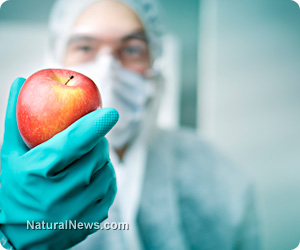Six dangerous prescription drugs you should think twice before taking
(NaturalNews) Just because your doctor prescribes it does not necessarily mean it is safe for you to take. Many popular prescription drugs, it turns out, come with the potential for serious side effects, including everything from short-term nausea and headaches to chronic inflammatory myopathy and heart disease -- or worse.

But this important information is often shrouded from public view, which intentionally perpetuates the myth that the benefits of FDA-approved drugs far outweigh any risks. So to give you a more solid understanding of the subject, here are six classes of prescription drugs you should definitely think twice about taking due to their inherent dangers:
1) Proton pump inhibitors (PPIs). Millions of Americans take PPIs to alleviate the symptoms of gastroesophageal reflux disease (GERD), a condition marked by food and acid in the stomach leaking back into the esophagus and causing damage. But PPIs like Nexium (exomeprazole) and Prevacid (lansoprazole) have been shown to both block nutrient absorption and inhibit the production of necessary stomach acid, which can cause a host of other health problems. (http://well.blogs.nytimes.com)
The U.S. Food and Drug Administration (FDA) has issued at least a dozen warnings about the dangers of PPIs, which include an increased risk of bacterial diarrhea, magnesium deficiency, and bone fractures (http://www.fda.gov). Long-term consumption of PPIs has also been linked to increased risk of pneumonia and unhealthy weight gain.
(http://www.naturalnews.com/036336_PPIs_acid_reflux_side_effects.html)
2) Statins. The top-selling class of drugs for several years in a row, statins are hailed by the medical system as a type of miracle cure for high cholesterol and heart disease. But popular statin drugs like Lipitor (atorvastatin calcium) and Crestor (rosuvastatin calcium) have been shown to greatly increase users' risk of diabetes, liver disease, brain damage, muscle atrophy, and even early death. (http://www.drfranklipman.com)
The side effects of statins are so severe, in fact, that the FDA recently expanded its official warnings about their use (http://www.fda.gov/ForConsumers/ConsumerUpdates/ucm293330.htm). Beyond this, more than a dozen studies have shown that taking statins for primary prevention does little, if anything, to prevent heart attack or stroke, which means the drug class is medically useless for the millions of otherwise healthy people who are prescribed it. (http://www.minnpost.com)
3) Antibiotics. The leading cause of antibiotic-resistant "superbugs," antibiotics are another class of drugs that can cause long-term health problems without providing much, if any, benefit. Insanely overprescribed for conditions that often do not even respond to them, antibiotics and their long-term abuse by the medical system has made many infections more virulent and untreatable.
According to Shane Ellison, M.S., from The People's Chemist, the three most dangerous antibiotics currently being prescribed are Levaquin (levofloxacin), Vancocin (vancomycin hydrochloride), and Bactrim (trimethoprim and sulfamethoxazole). Ellison also lists quinolones, the most commonly prescribed class of antibiotics, as dangerous as well, noting that antibiotics like Cipro (ciprofloxacin), Avelox (moxifloxacin HCL), and Floxin (ofloxacin) can cause severe and permanent disability. (http://thepeopleschemist.com)
4) Antipsychotics. One of the deadliest drug classes, antipsychotics are commonly prescribed for conditions like schizophrenia, bipolar disorder, and severe major depression, as well as for many "off-label" conditions such as mild mood disorder and everyday anxiety. But popular antipsychotic drugs like Seroquel (quetiapine fumarate), Abilify (aripiprazole), Risperdal (risperidone), and Zyprexa (olanzapine) have been shown to increase blood sugar levels, elevate lipid and cholesterol levels, and promote weight gain. (http://www.nytimes.com)
But even more concerning is the long-term neurological and brain damage that can result from taking antipsychotics, not to mention the greatly elevated risk of metabolic syndrome, which can include major health conditions like cardiovascular disease and diabetes (http://www.sciencedaily.com/releases/2012/11/121127190016.htm). Antipsychotics are so dangerous that a study published in the British Medical Journal (BMJ) declared them to be more deadly than terrorism. (http://www.naturalnews.com)
5) Opioid pain relievers. Pharmaceutical drugs have officially been declared a leading cause of death in America today, and leading the way are opioid-based painkillers like Vicodin (hydrocodone bitartrate and acetaminophen), OxyContin (oxycodone HCI), Percocet (oxycodone and acetaminophen), codeine, and morphine.
According to a study out of Brandeis University in Massachusetts, prescription painkillers are now responsible for causing more fatal overdoses than both heroin and cocaine combined. The U.S. Centers for Disease Control and Prevention (CDC) has actually declared an epidemic in response to this elevated number of prescription painkiller deaths. (http://www.naturalnews.com)
6) Selective serotonin reuptake inhibitors (SSRIs). Antidepressants like Prozac (fluoxetine), Zoloft (sertraline), Paxil (paroxetine), and Lexapro (escitalopram) have been around for years, but their dangers typically receive far less attention than they deserve. Side effects like suicidal tendencies, sexual dysfunction, gastrointestinal bleeding, and heart disease are just the tip of the iceberg when it comes to the many side effects of SSRIs.
In some cases, SSRIs can actually make depression symptoms worse, leading some individuals to become violent. Be sure to watch the Health Ranger's music video S.S.R.Lies for a creative glimpse at the dangers of SSRIs: http://www.naturalnews.com
Learn more: http://www.naturalnews.com/039958_prescription_drugs_side_effects_dangers.html#ixzz2QjM3Lml3

But this important information is often shrouded from public view, which intentionally perpetuates the myth that the benefits of FDA-approved drugs far outweigh any risks. So to give you a more solid understanding of the subject, here are six classes of prescription drugs you should definitely think twice about taking due to their inherent dangers:
1) Proton pump inhibitors (PPIs). Millions of Americans take PPIs to alleviate the symptoms of gastroesophageal reflux disease (GERD), a condition marked by food and acid in the stomach leaking back into the esophagus and causing damage. But PPIs like Nexium (exomeprazole) and Prevacid (lansoprazole) have been shown to both block nutrient absorption and inhibit the production of necessary stomach acid, which can cause a host of other health problems. (http://well.blogs.nytimes.com)
The U.S. Food and Drug Administration (FDA) has issued at least a dozen warnings about the dangers of PPIs, which include an increased risk of bacterial diarrhea, magnesium deficiency, and bone fractures (http://www.fda.gov). Long-term consumption of PPIs has also been linked to increased risk of pneumonia and unhealthy weight gain.
(http://www.naturalnews.com/036336_PPIs_acid_reflux_side_effects.html)
2) Statins. The top-selling class of drugs for several years in a row, statins are hailed by the medical system as a type of miracle cure for high cholesterol and heart disease. But popular statin drugs like Lipitor (atorvastatin calcium) and Crestor (rosuvastatin calcium) have been shown to greatly increase users' risk of diabetes, liver disease, brain damage, muscle atrophy, and even early death. (http://www.drfranklipman.com)
The side effects of statins are so severe, in fact, that the FDA recently expanded its official warnings about their use (http://www.fda.gov/ForConsumers/ConsumerUpdates/ucm293330.htm). Beyond this, more than a dozen studies have shown that taking statins for primary prevention does little, if anything, to prevent heart attack or stroke, which means the drug class is medically useless for the millions of otherwise healthy people who are prescribed it. (http://www.minnpost.com)
3) Antibiotics. The leading cause of antibiotic-resistant "superbugs," antibiotics are another class of drugs that can cause long-term health problems without providing much, if any, benefit. Insanely overprescribed for conditions that often do not even respond to them, antibiotics and their long-term abuse by the medical system has made many infections more virulent and untreatable.
According to Shane Ellison, M.S., from The People's Chemist, the three most dangerous antibiotics currently being prescribed are Levaquin (levofloxacin), Vancocin (vancomycin hydrochloride), and Bactrim (trimethoprim and sulfamethoxazole). Ellison also lists quinolones, the most commonly prescribed class of antibiotics, as dangerous as well, noting that antibiotics like Cipro (ciprofloxacin), Avelox (moxifloxacin HCL), and Floxin (ofloxacin) can cause severe and permanent disability. (http://thepeopleschemist.com)
4) Antipsychotics. One of the deadliest drug classes, antipsychotics are commonly prescribed for conditions like schizophrenia, bipolar disorder, and severe major depression, as well as for many "off-label" conditions such as mild mood disorder and everyday anxiety. But popular antipsychotic drugs like Seroquel (quetiapine fumarate), Abilify (aripiprazole), Risperdal (risperidone), and Zyprexa (olanzapine) have been shown to increase blood sugar levels, elevate lipid and cholesterol levels, and promote weight gain. (http://www.nytimes.com)
But even more concerning is the long-term neurological and brain damage that can result from taking antipsychotics, not to mention the greatly elevated risk of metabolic syndrome, which can include major health conditions like cardiovascular disease and diabetes (http://www.sciencedaily.com/releases/2012/11/121127190016.htm). Antipsychotics are so dangerous that a study published in the British Medical Journal (BMJ) declared them to be more deadly than terrorism. (http://www.naturalnews.com)
5) Opioid pain relievers. Pharmaceutical drugs have officially been declared a leading cause of death in America today, and leading the way are opioid-based painkillers like Vicodin (hydrocodone bitartrate and acetaminophen), OxyContin (oxycodone HCI), Percocet (oxycodone and acetaminophen), codeine, and morphine.
According to a study out of Brandeis University in Massachusetts, prescription painkillers are now responsible for causing more fatal overdoses than both heroin and cocaine combined. The U.S. Centers for Disease Control and Prevention (CDC) has actually declared an epidemic in response to this elevated number of prescription painkiller deaths. (http://www.naturalnews.com)
6) Selective serotonin reuptake inhibitors (SSRIs). Antidepressants like Prozac (fluoxetine), Zoloft (sertraline), Paxil (paroxetine), and Lexapro (escitalopram) have been around for years, but their dangers typically receive far less attention than they deserve. Side effects like suicidal tendencies, sexual dysfunction, gastrointestinal bleeding, and heart disease are just the tip of the iceberg when it comes to the many side effects of SSRIs.
In some cases, SSRIs can actually make depression symptoms worse, leading some individuals to become violent. Be sure to watch the Health Ranger's music video S.S.R.Lies for a creative glimpse at the dangers of SSRIs: http://www.naturalnews.com
Learn more: http://www.naturalnews.com/039958_prescription_drugs_side_effects_dangers.html#ixzz2QjM3Lml3

